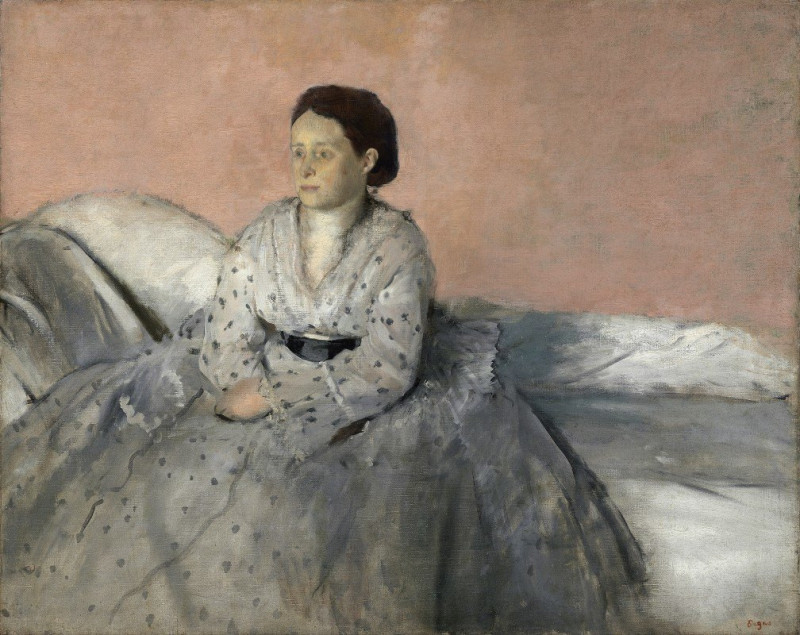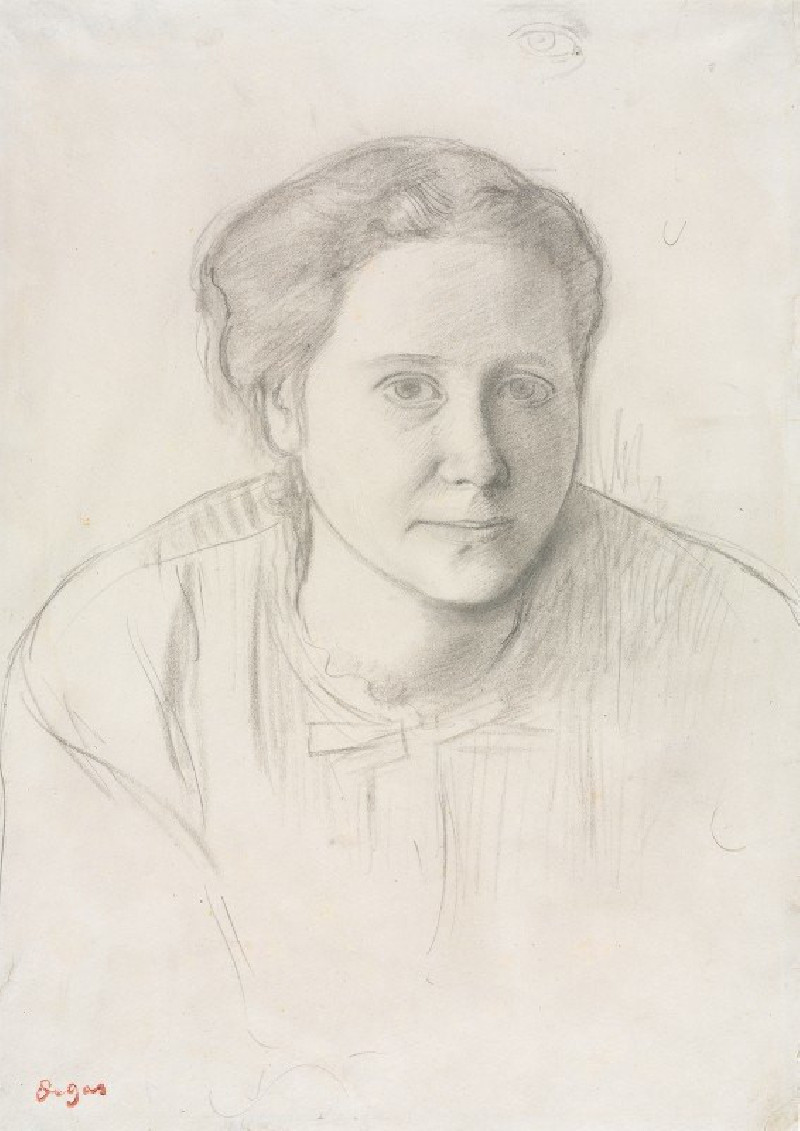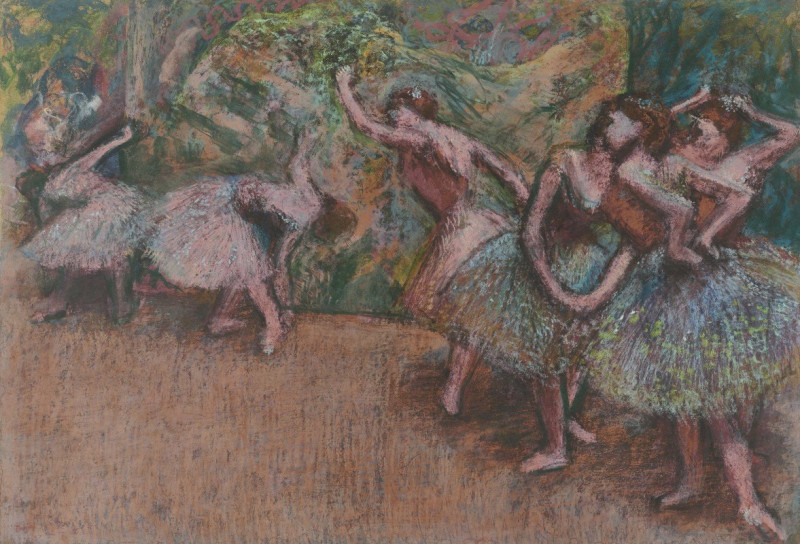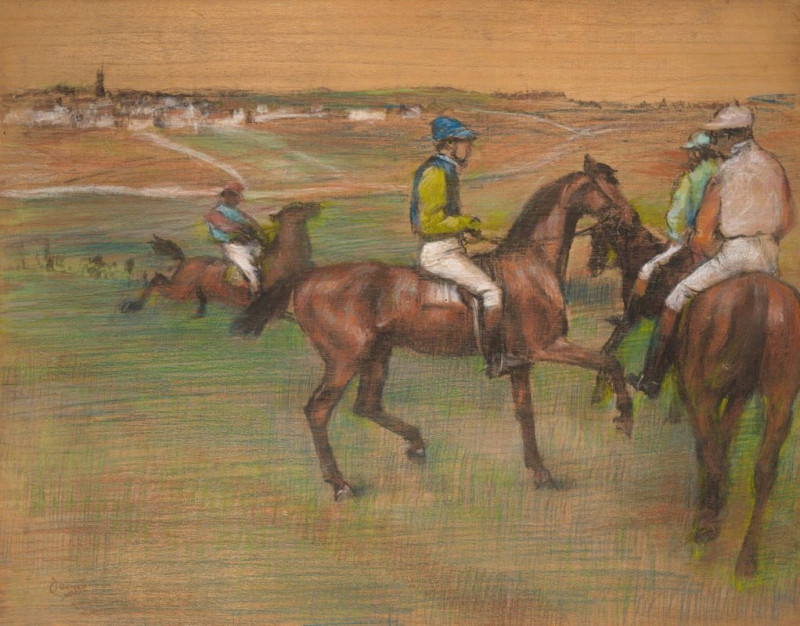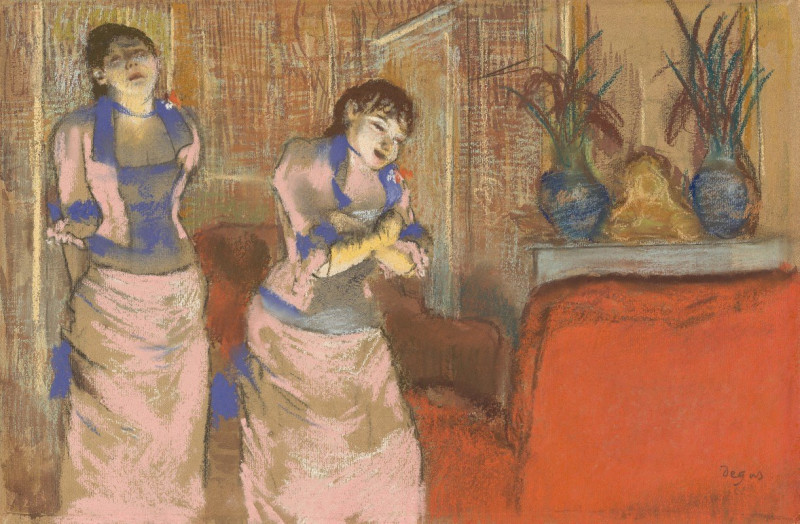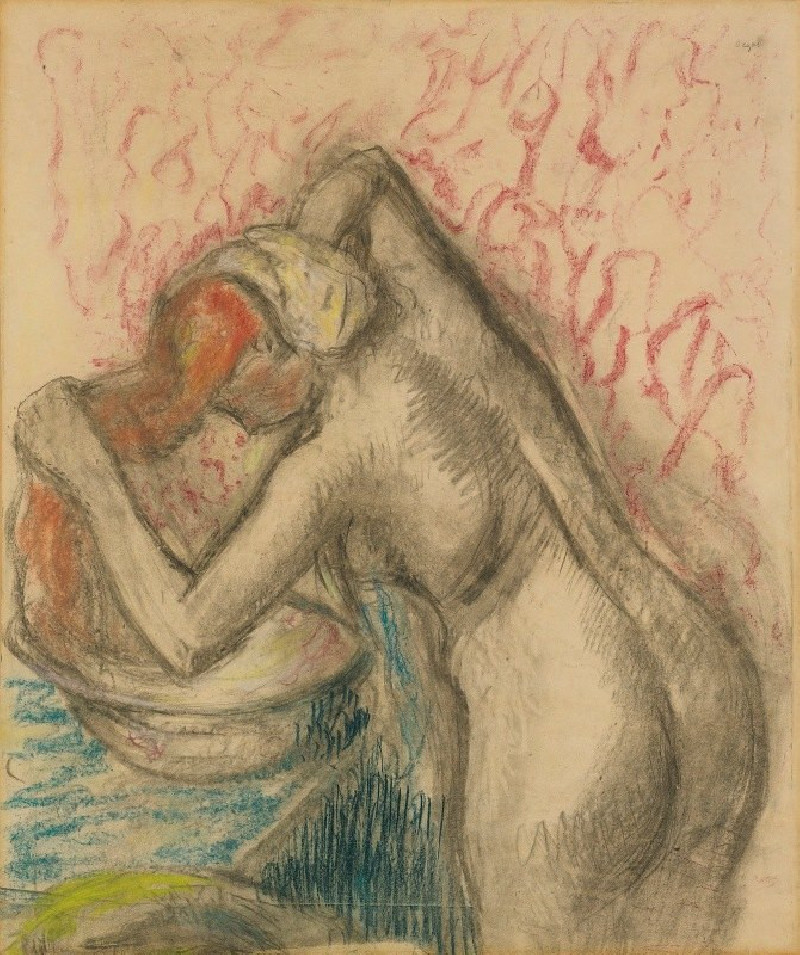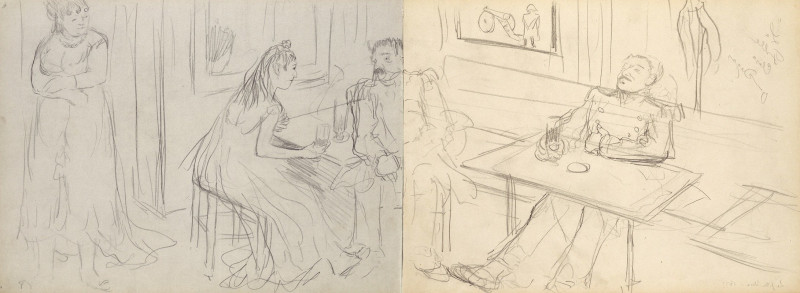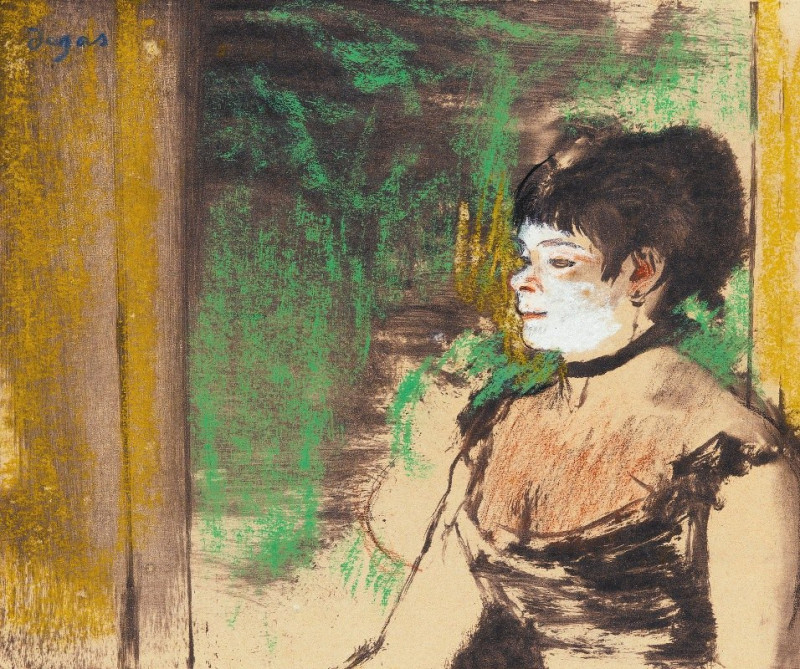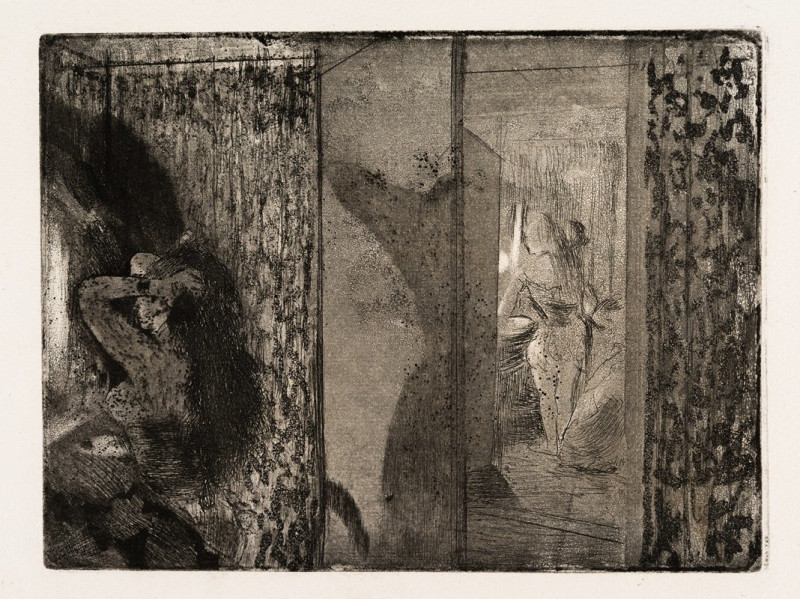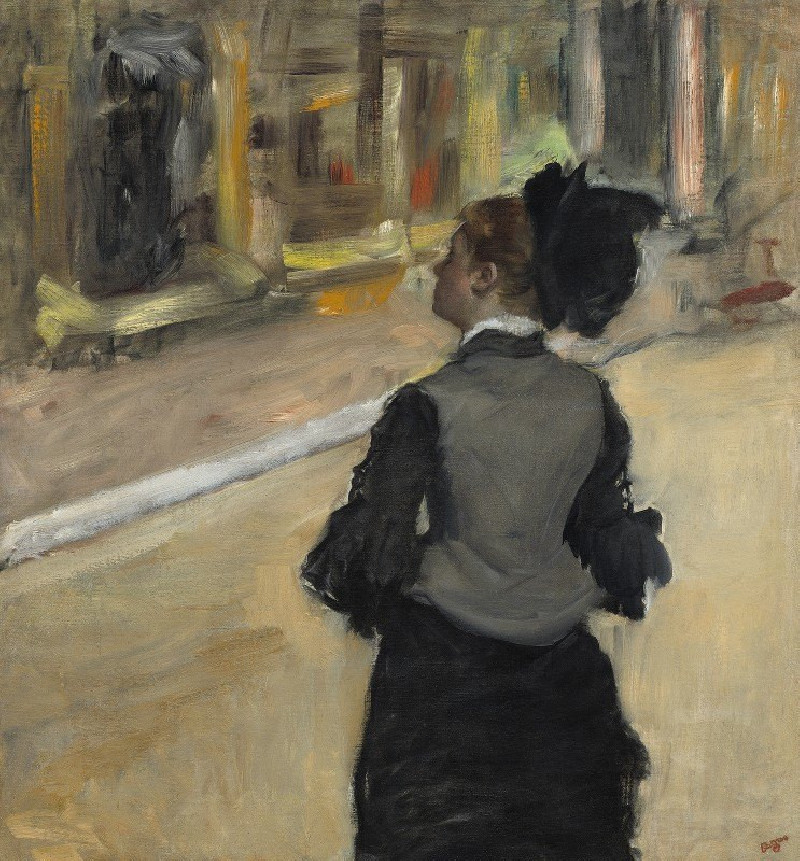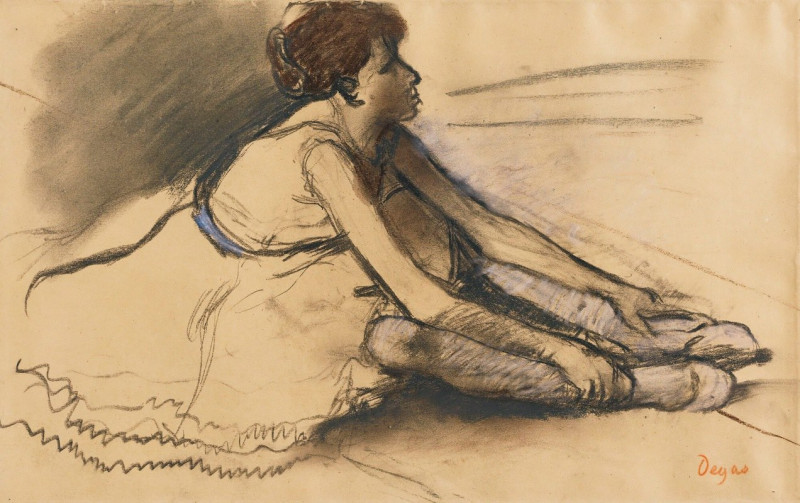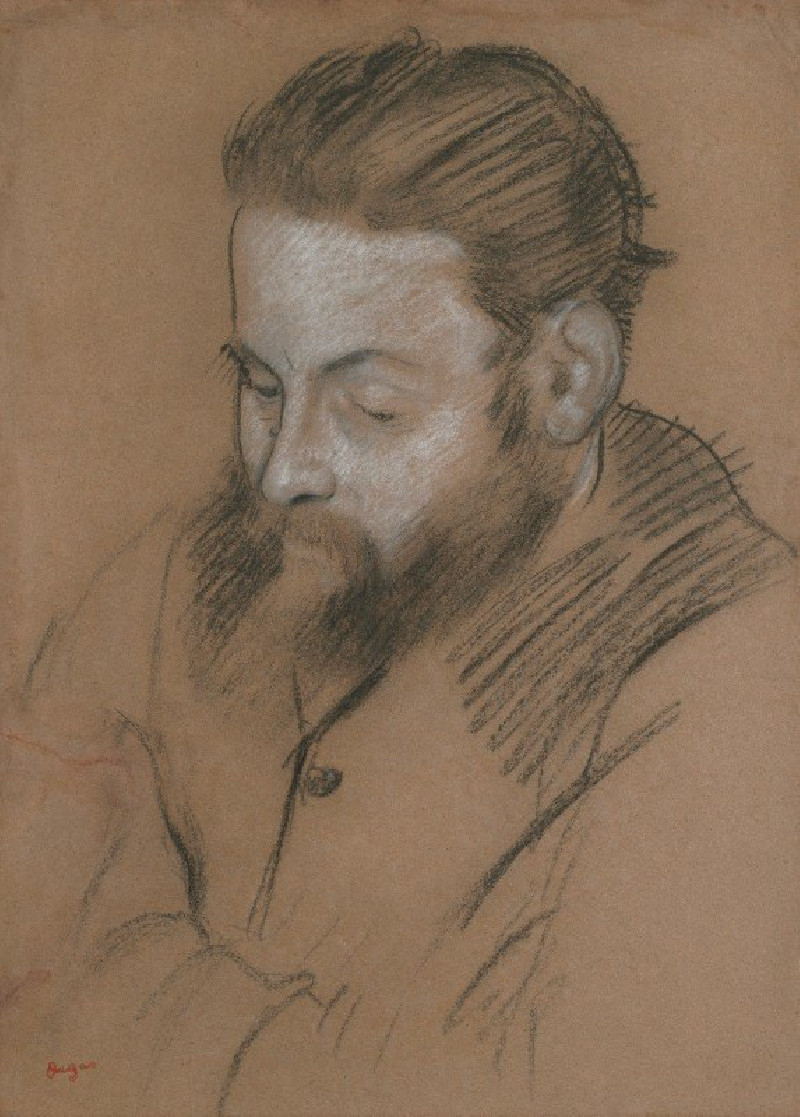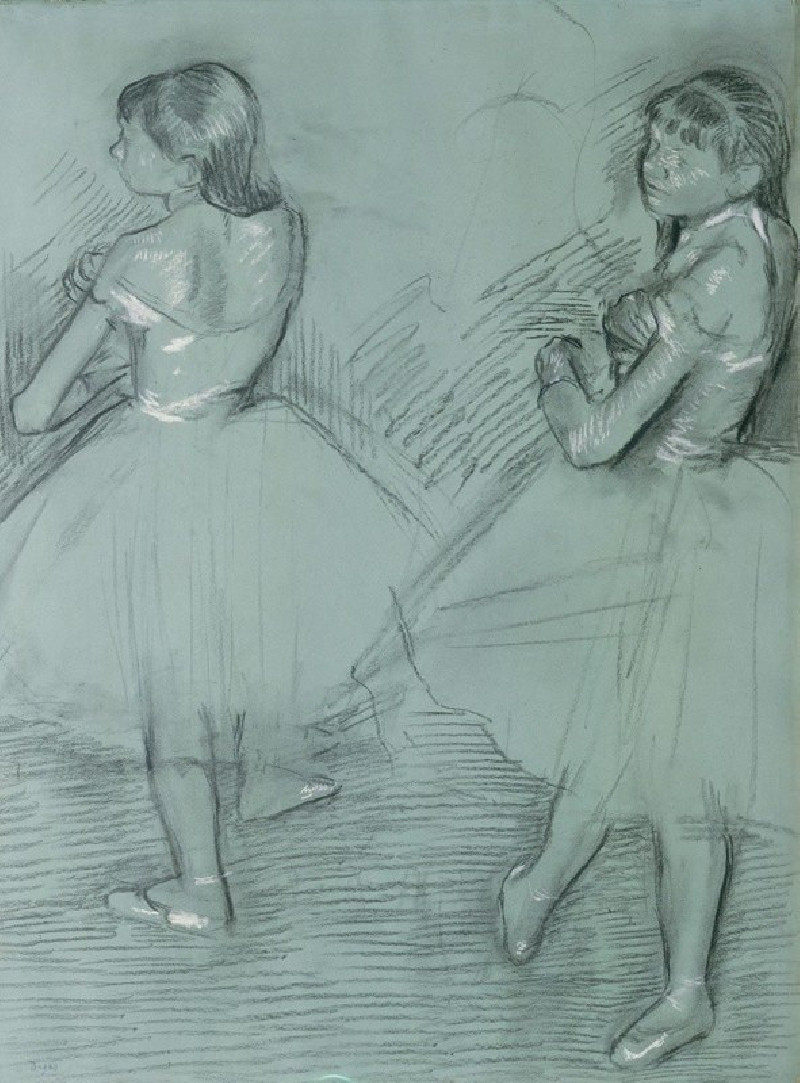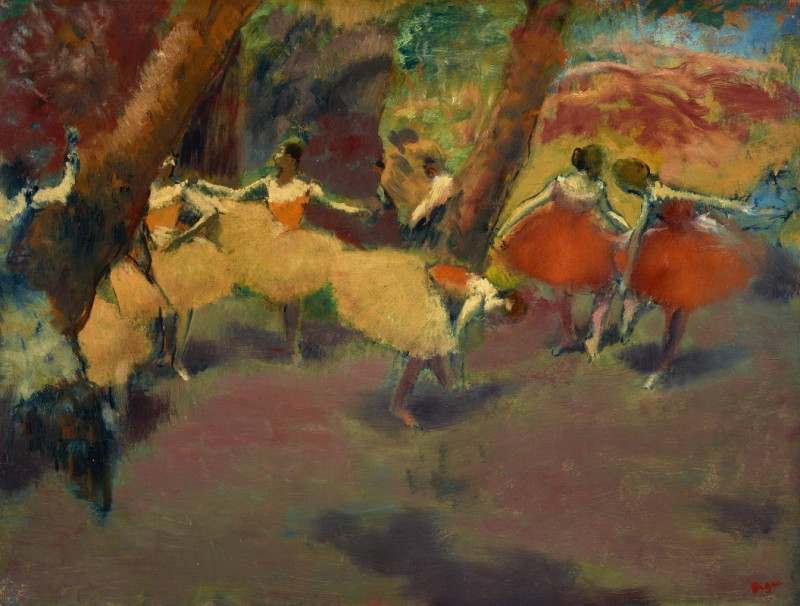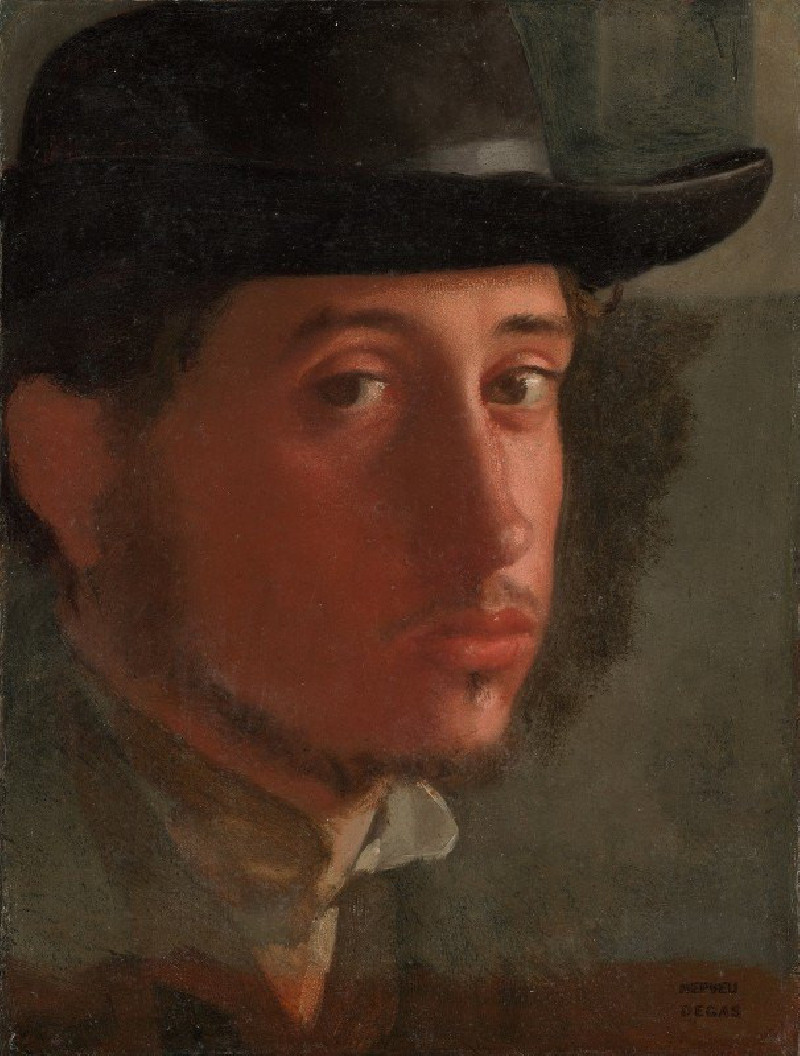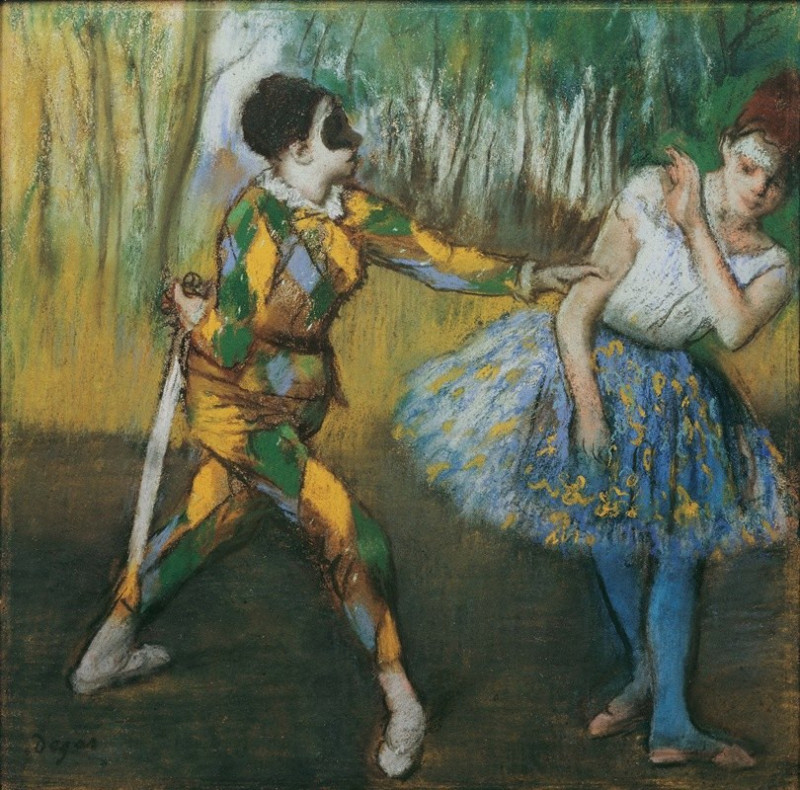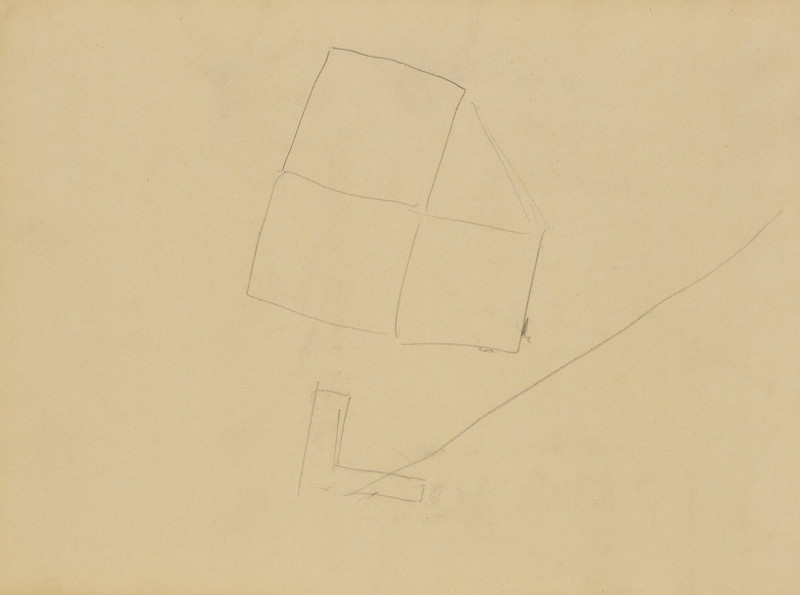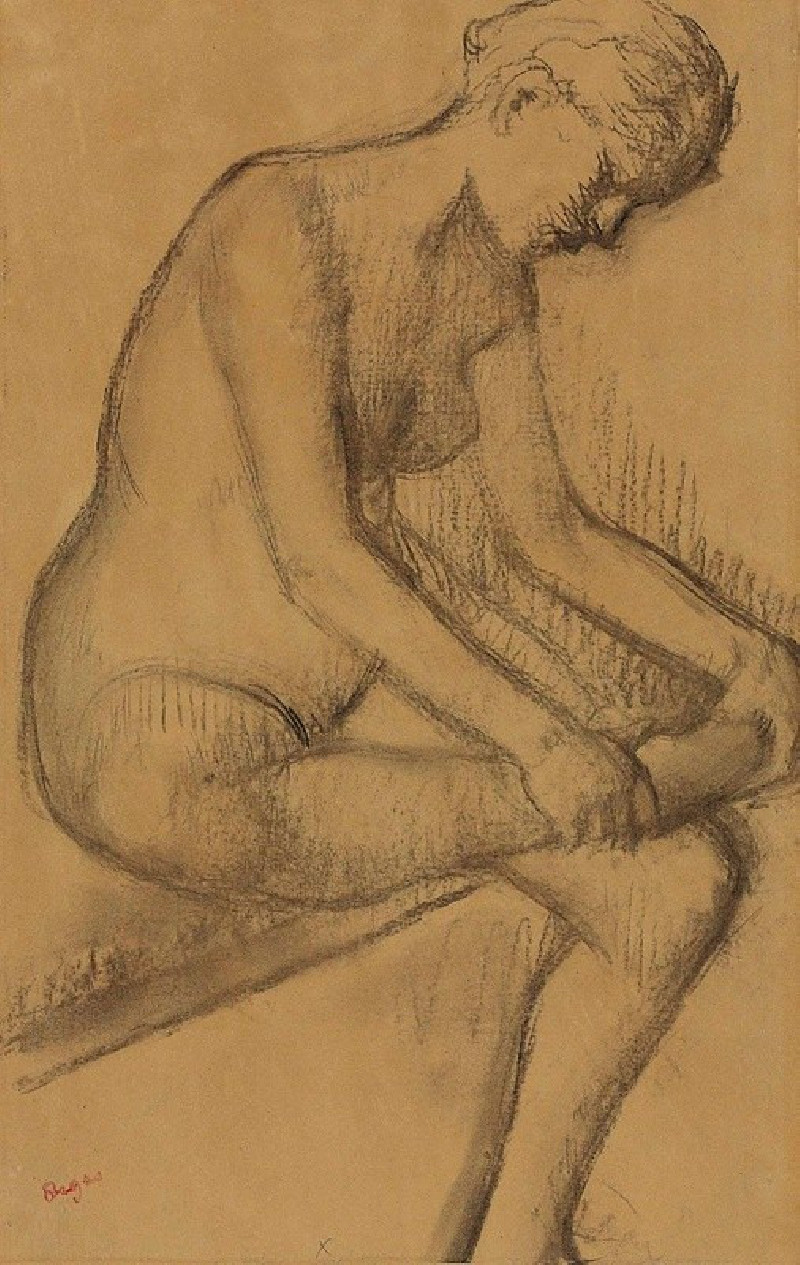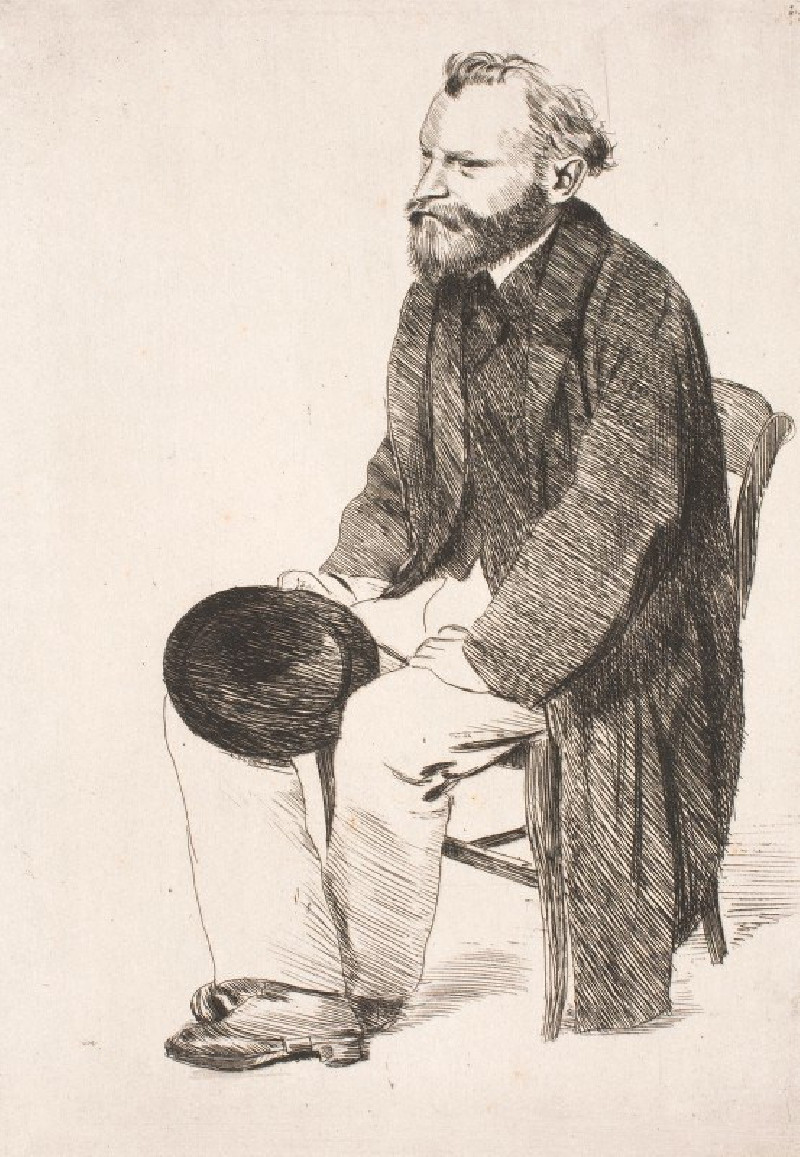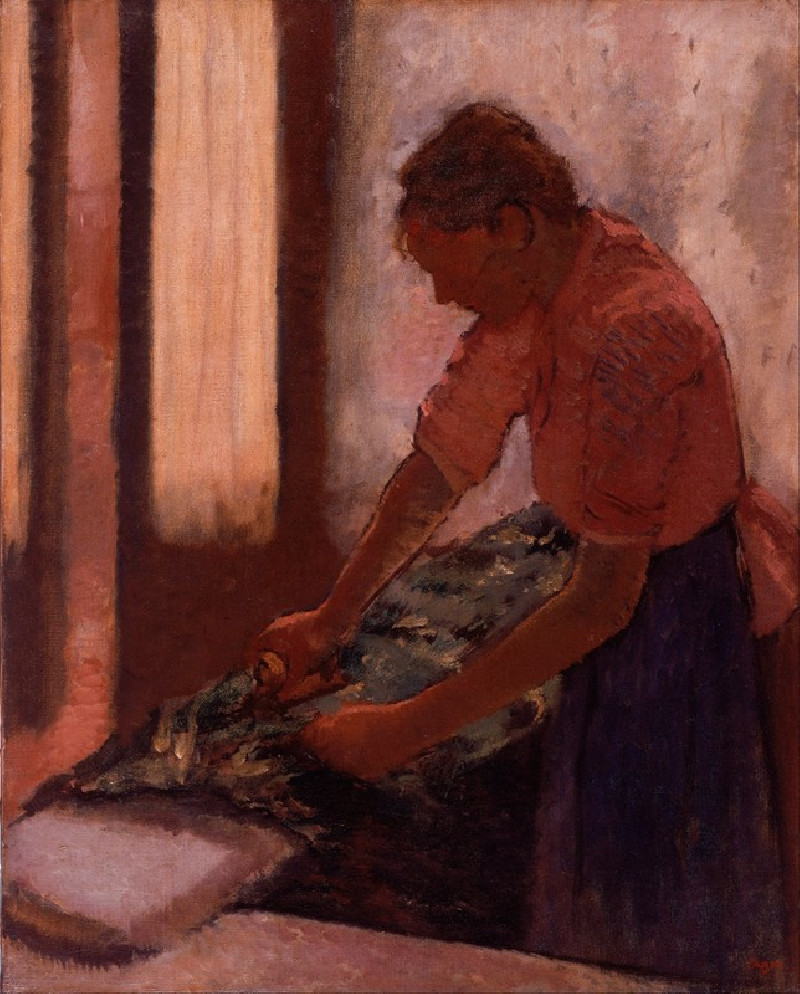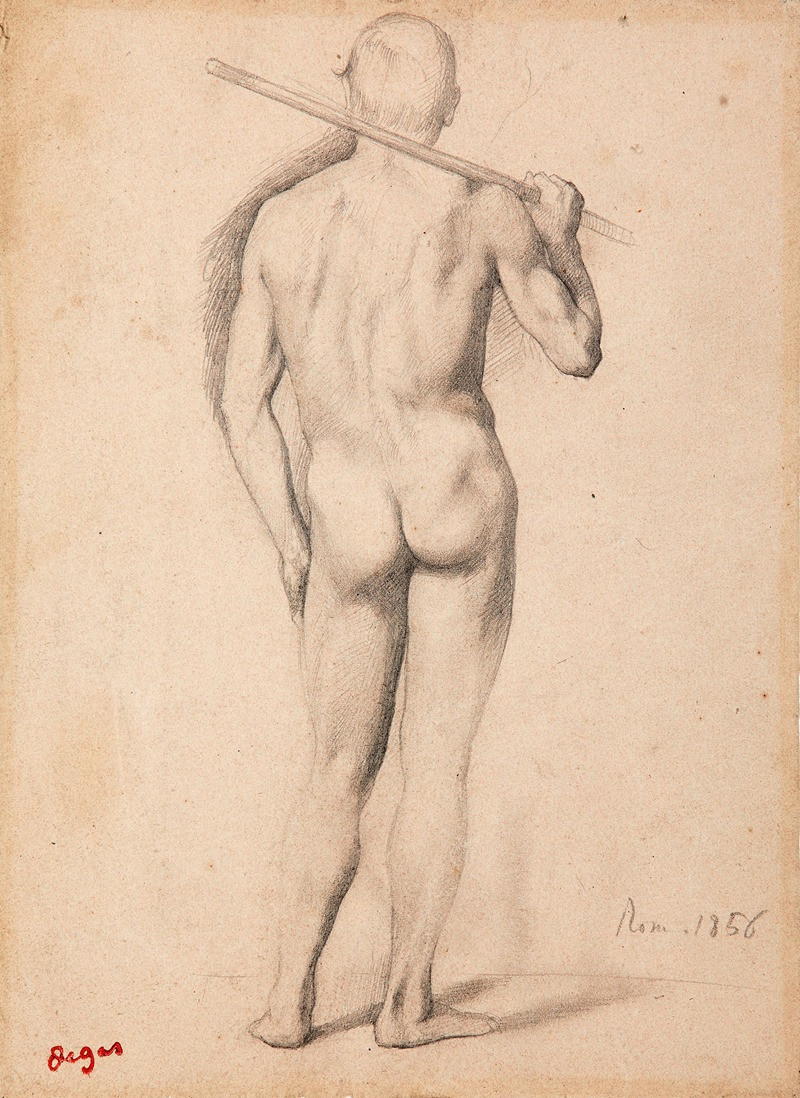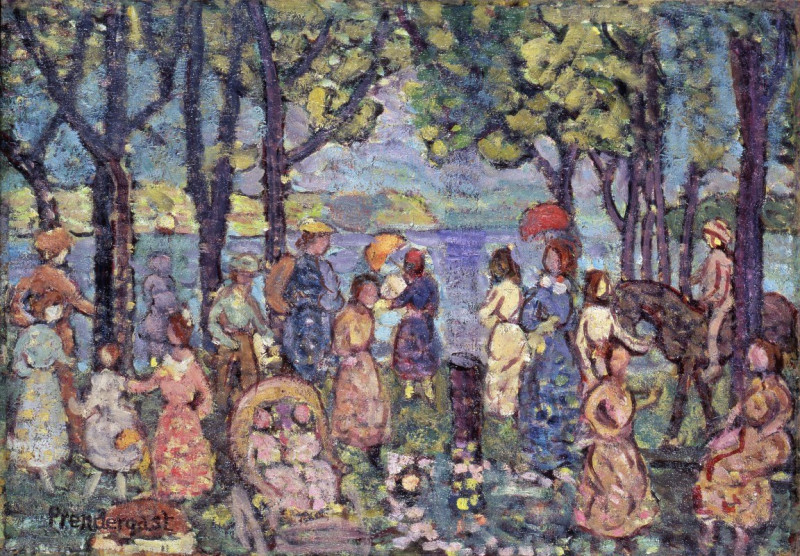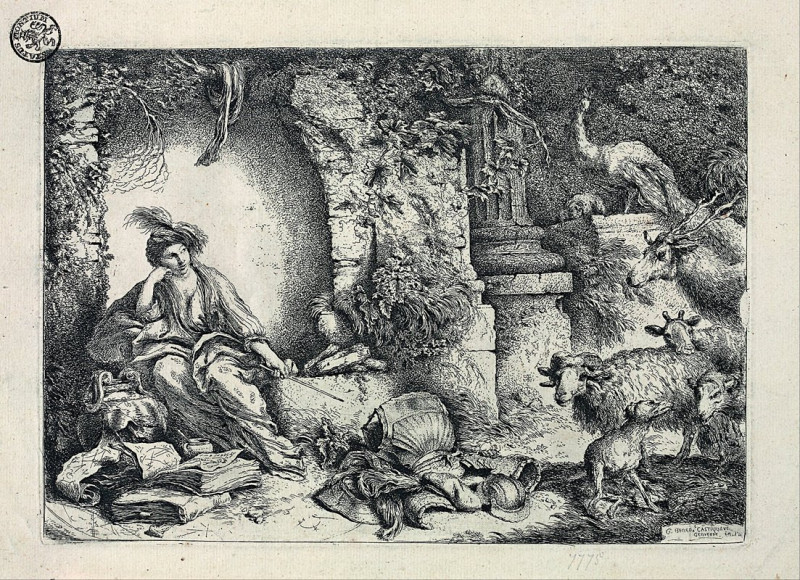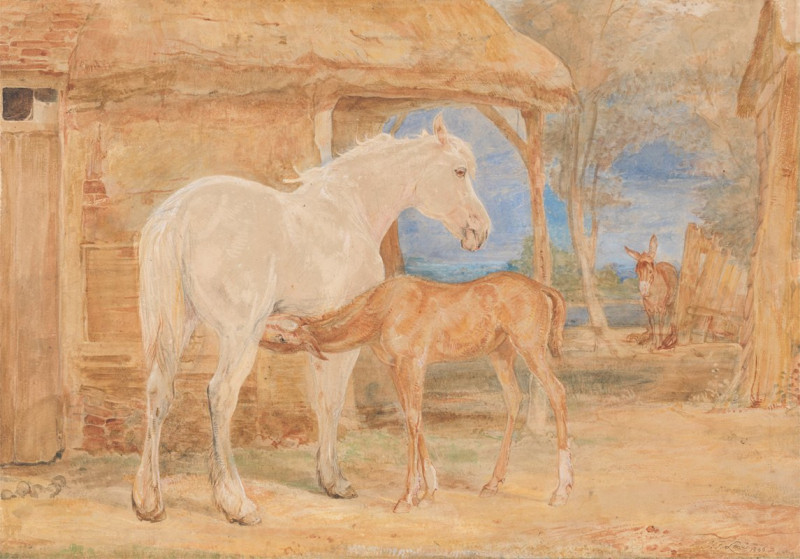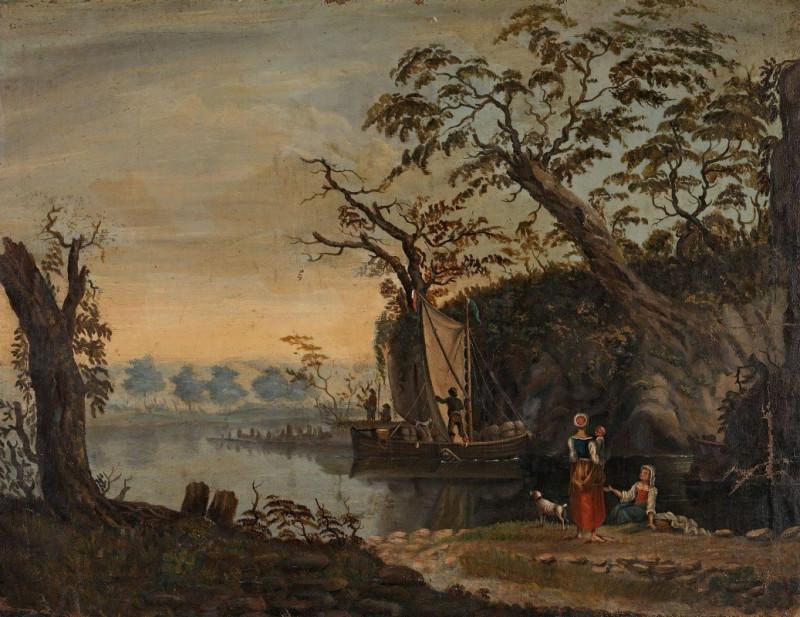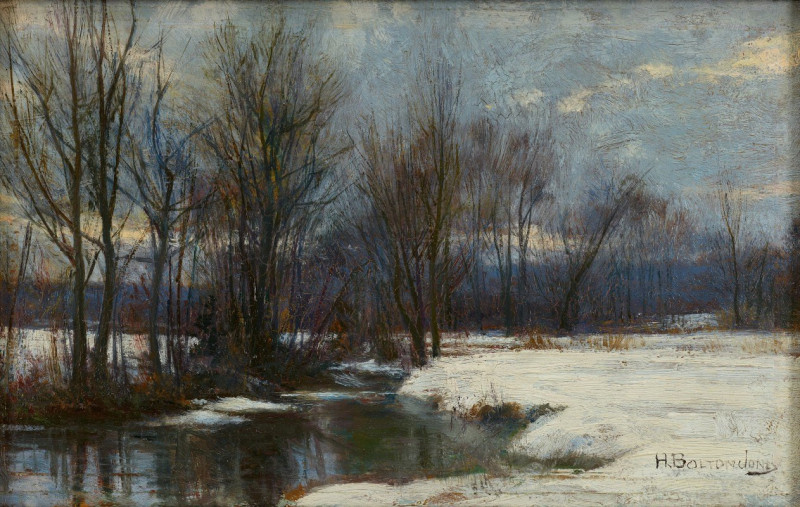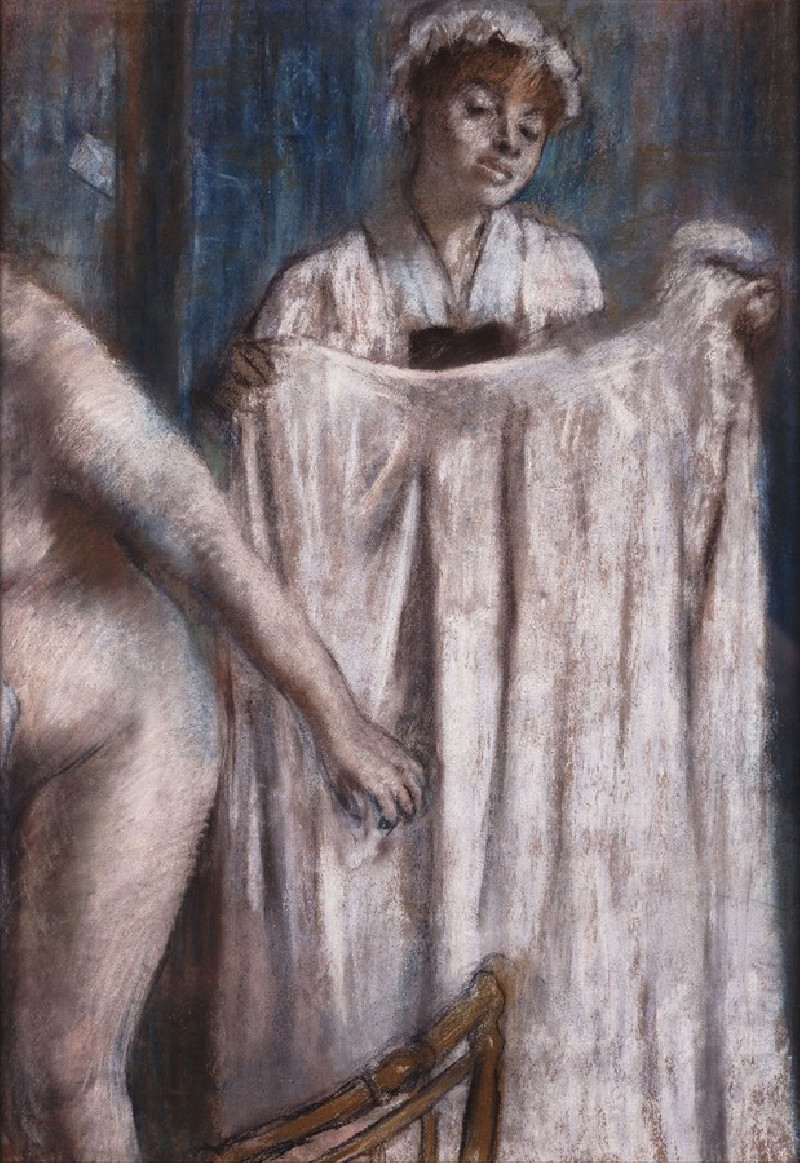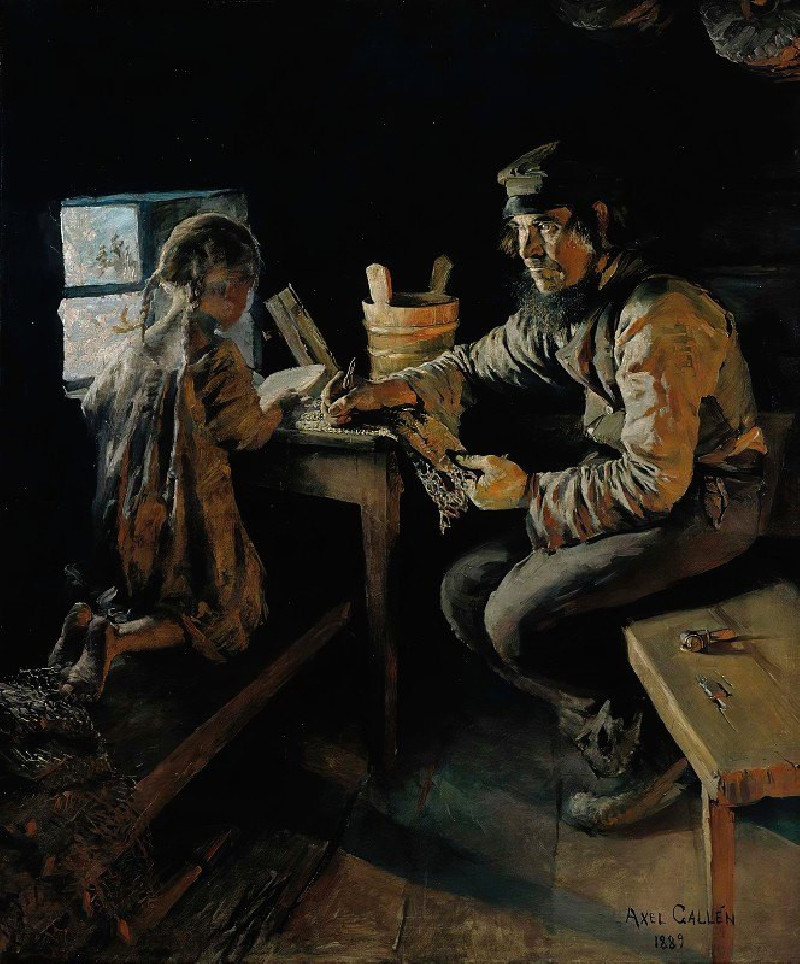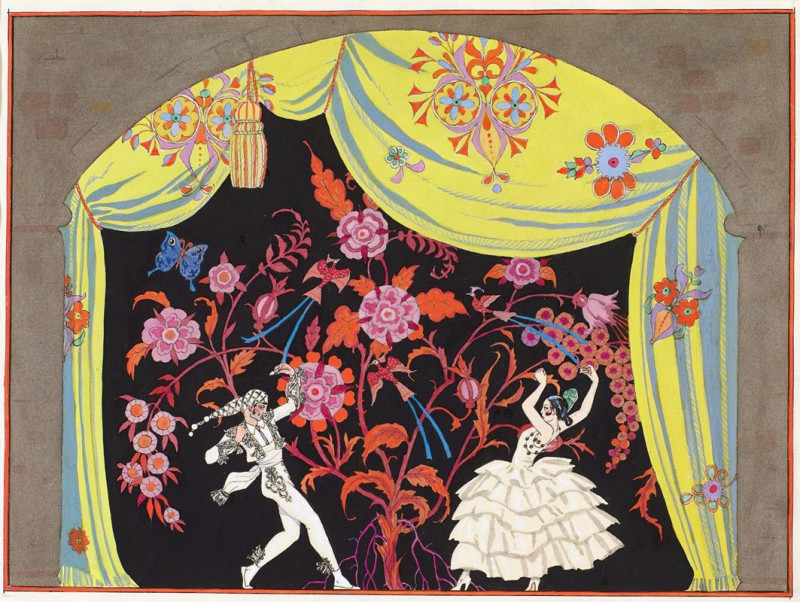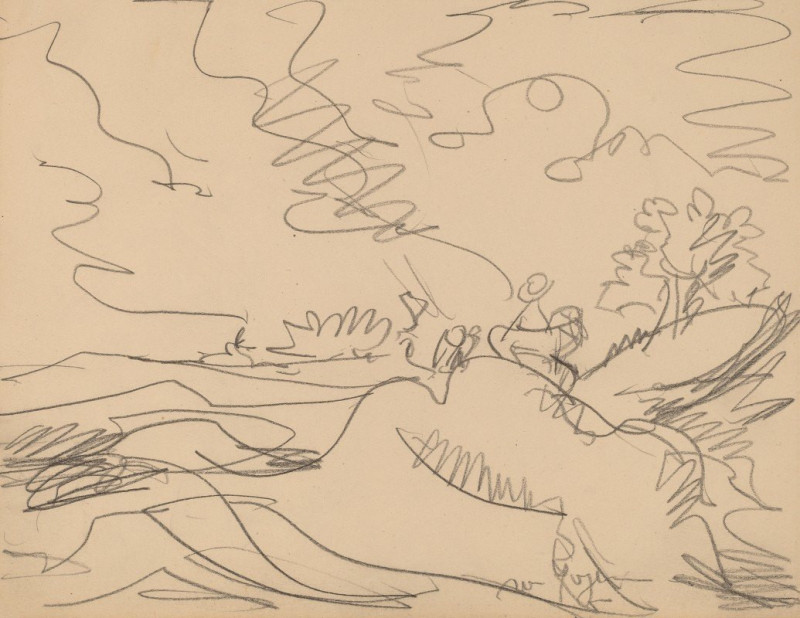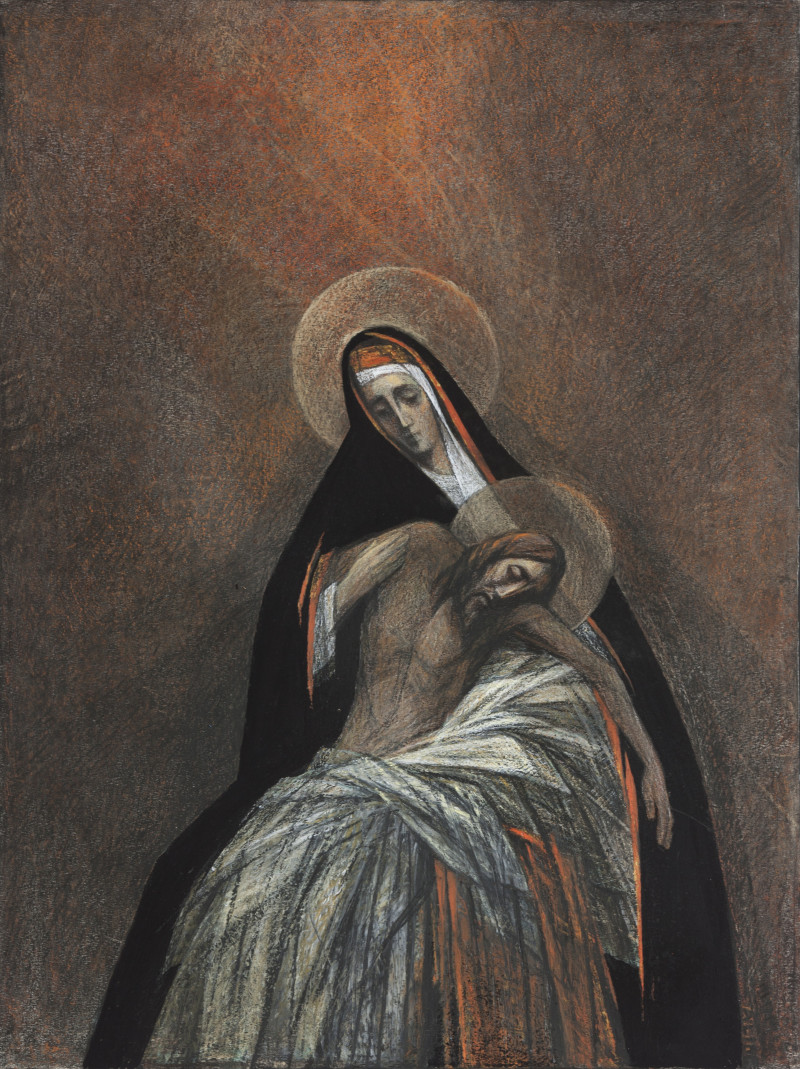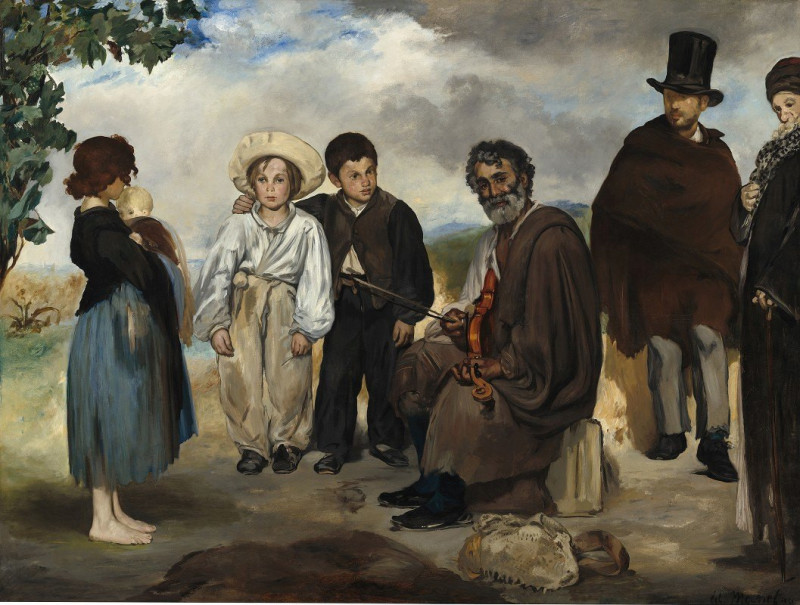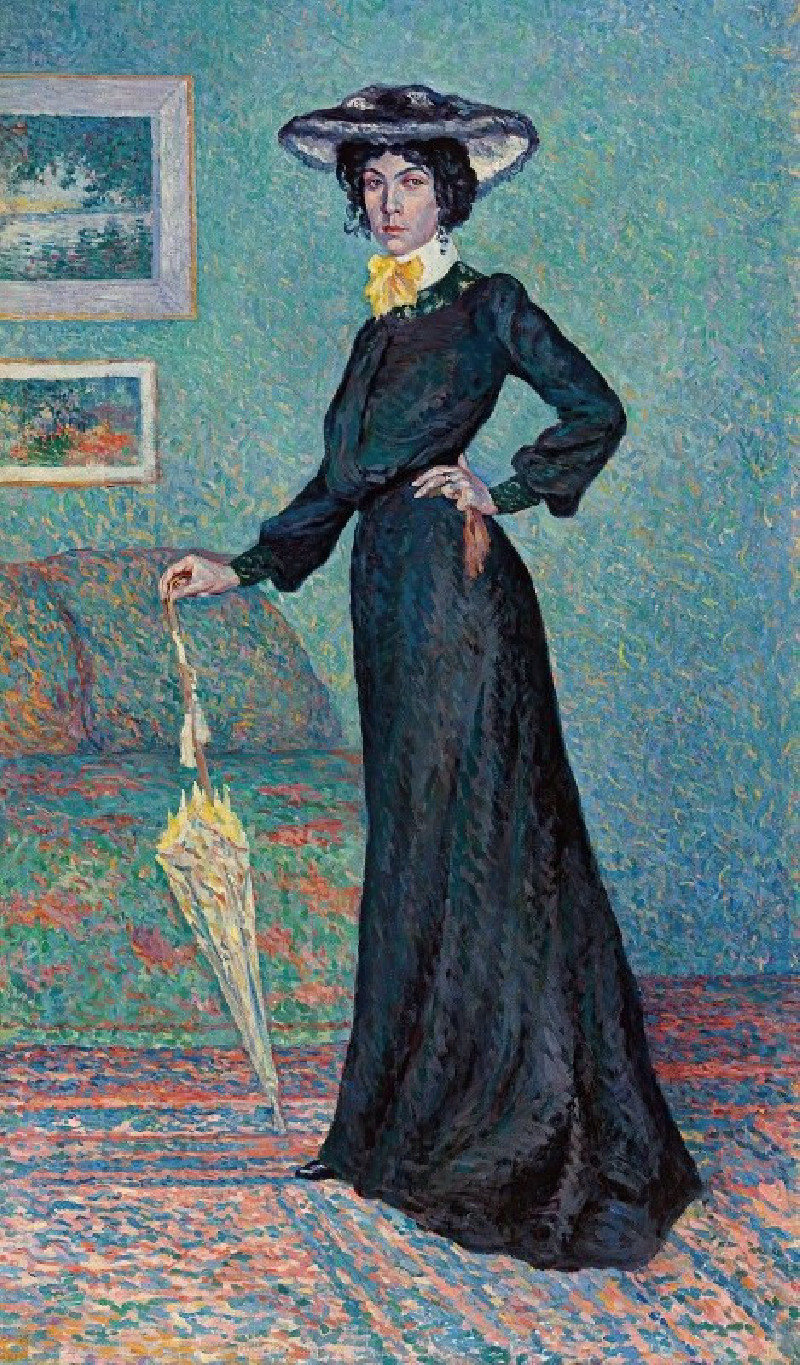Madame René de Gas (1872-1873)
Technique: Giclée quality print
Recommended by our customers
More about this artwork
"Madame René de Gas" is a subtle and introspective portrait painted by the renowned French artist Edgar Degas between 1872 and 1873. This work captures Degas' sister-in-law, Estelle Musson Balfour, in a moment of quiet repose. With a soft palette dominated by muted grays and a warm backdrop, the painting conveys an air of gentle melancholy. Estelle is portrayed seated, dressed in a delicate white gown speckled with gray dots, which contrasts beautifully against the textured fabric of the sofa. Her posture and the slight tilt of her head suggest introspection or a moment of rest, possibly hinting at the blindness that affected her later in life.Degas' mastery in rendering fabric and human expression is evident as he captures both the texture of the dress and the reflective mood of Madame René de Gas. The overall composition, with its minimal background and the focus tightly held on the figure, draws viewers into a personal encounter with Estelle, hinting at the layers of her personality and her life's stories.

